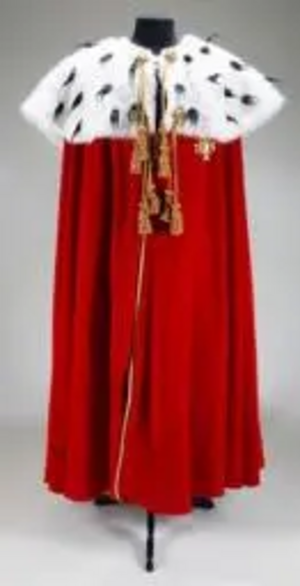Cut the Robes at Business Meetings

A Motion to the borough council has been submitted which, if agreed, would save money by ending the wearing of ceremonial robes at business meetings.
Each councillor in Epsom and Ewell is entitled to a robe (a kind of cloak with a furry collar, in either red or blue) and a hat. The hat is usually confined to ceremonial occasions but the whole ensemble for all 38 councillors requires setting up in advance of meetings.
Robes also require cleaning and allocating to new councillors from time to time plus the occasional repair. Lib Dem councillors want the practice of wearing them at business meetings abolished. This would not only reduce wear and tear but also save paying for the overtime of the council attendants, who need to bring the robes out from storage to have them available prior to council meetings and then wait until after the meeting has finished to put them away again.
Lib Dem councillors have worn robes only at ceremonial occasions for 20 years, but the Residents' Party (RA) councillors insist on wearing them at council business meetings which are held at least four times each year. The Lib Dems feel that wearing a robe in a business meeting is out of date and tends to set councillors apart from the members of the public who elected them.
The Motion to council, submitted by Cllr Colin Taylor, is likely to be debated at a future committee meeting, but could be discussed on the evening of submission which is 20th July. This meeting is open to the public and begins at 7.30pm - with the wearing of robes!
